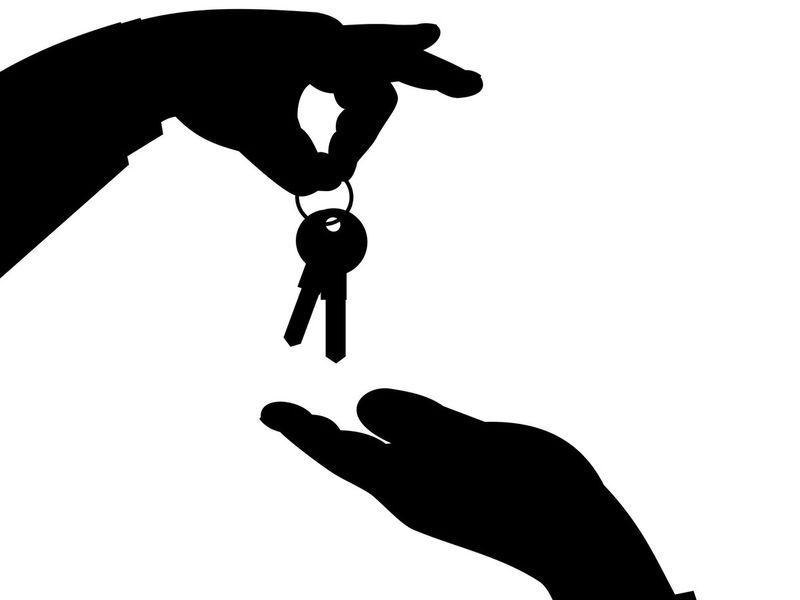[ad_1]
Getting the right type of mortgage can lead to cost savings and reduced risk for the borrower.
Image Credit: Shutterstock
Dubai: Let’s say you are approaching retirement with minimal savings on hand, whereby you hope to refinance your home to make ends meet after retirement. This has been the trend in recent years, as shown by global studies, so there is a need to determine if this is a smart money move.
Lower mortgage rates can save you hundreds of dirhams on your monthly payments. Refinancing your mortgage to a new one with a lower rate then seems logical.
But what if you are nearing retirement? Is refinancing a smart move when you plan to leave the workforce in five years or less? The answer depends on your unique financial situation and your refinancing goal.
To Refinance Or Not To Refinance?
If your main goal is to reduce your monthly costs, refinancing may be a good idea. But if you plan to move soon, say in less than five years, refinancing may not be the best option.
This is because refinancing a home loan is not free. Typical refinancing costs thousands of dirhams – money that you will usually build into your new loan amount and repay over time when you make your regular monthly payments.
It may take you several years to save enough money each month to recoup the closing costs. If you move too early (and surveys show retirees often leave their homes earlier than they originally planned), you might not be generating enough monthly savings to even pay off those up-front closing costs.

Refinancing, unless you simultaneously reduce the term of your loan, means you will be paying off your mortgage for a longer number of years.
Need to consider the time factor first
Then there is the time factor. Refinancing, unless you simultaneously reduce the term of your loan, means you will be paying off your mortgage for a longer number of years. As a retiree, you may prefer to pay off your current mortgage on a shorter timeframe instead.
One consideration is the length of the term on the new loan. When people refinance their mortgage, they redefine the term of the loan and basically start over.
For example, if you are paying off a 30-year fixed rate mortgage that you have been making payments on for 15 years, you will have an additional 15 years to pay off that loan. If you refinance that loan for a new 30-year loan, you’ve just extended the life of your mortgage by an additional 15 years.
The questions you need to ask yourself are: Do you want that monthly payment to hang over you for another 15 years, even if refinancing results in immediate monthly savings?
That’s not an easy question to answer, especially when you consider how much of your new mortgage payments, even with a lower interest rate, will go towards interest rather than principal.
The first few years of mortgage payments on a new loan are designed to pay interest and less principal. Over the years, more of the monthly payments go towards principal and less towards interest, so subject matter experts say this is another important consideration.

It is important that every homeowner calculates a few numbers before deciding to refinance.
Then understand what the numbers say
It is important that every homeowner calculates a few numbers before deciding to refinance. But it’s especially important for those nearing retirement who might need to recoup their refinancing closing costs in as few months as possible.
Let’s say you owe Dh 150,000 on a 30 year fixed rate mortgage with an interest rate of 5%. Your monthly payment, excluding insurance, will be approximately Dh805.
If you refinance that same amount into a 30-year fixed rate loan with an interest rate of 3.95%, your monthly payment will drop to around Dh711 per month, saving about Dh94 per month, or Dh1,128 per month. year. Sounds good, right? But remember, refinancing can be expensive.
Suppose that refinancing this amount of 150,000 Dh costs 4,500 Dh in closing costs. It will take you almost four years to save enough on your refinance to pay off those closing costs. Is it worth it ? If you are staying in your home for eight years or more, it may be. If you move in five years, that may not be the case.
However, let’s say you owe Dh200,000 on a 30 year fixed rate loan with an interest rate of 5%. Then your monthly payment, again not including insurance, would be around Dh1073.
If you refinance these 200,000 Dh into a new 30 year fixed rate loan but at an interest rate of 3.95%, your monthly payment will drop to around 949 Dh per month. This represents a saving of 124 Dh per month, or 1,488 Dh per year.
If closing your loan costs the same amount of Dh4,500, it would take you a little over three years to generate enough savings to pay your closing costs. This shorter period could make it more attractive to homeowners approaching retirement.

More and more banks in the UAE are offering deals on their existing mortgages, where they reduce the interest rate charged for a period of one year, passing the recent lower interest rates on to customers. The image is used for illustration purposes only.
Image Credit: Provided
One final factor to consider to help you decide
There is another factor to consider. If you absolutely have to cut your monthly living expenses after you retire, refinancing can be a good idea, although it will take longer to recoup the closing costs.
From a global perspective, many retirees typically see their retirement income drop to almost half of what they earned while working full time, according to multiple research.
This, according to real estate consultants, is one of the considerations borrowers should take into account when making a refinancing decision.
Will they be able to pay the monthly mortgage, insurance (and property taxes, if applicable in your country) monthly payments out of their retirement income?
[ad_2]

